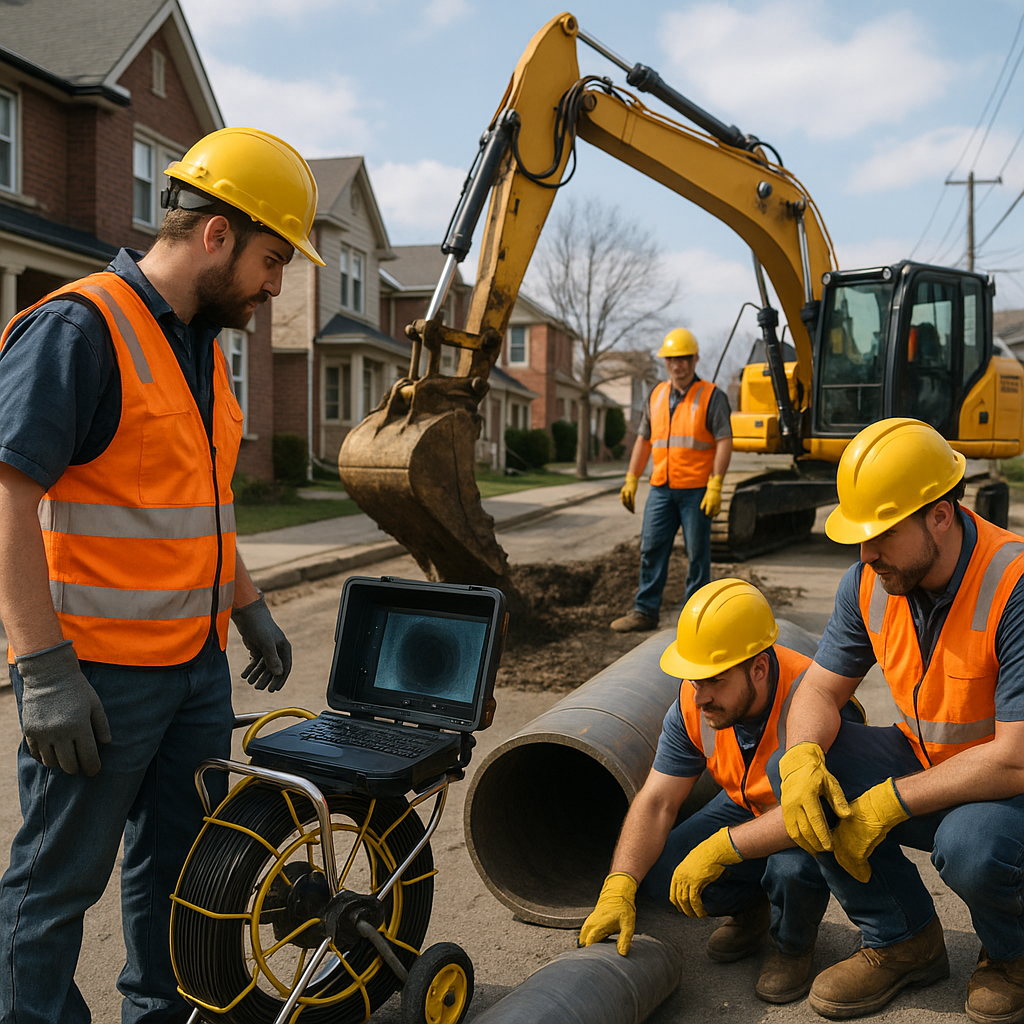Overcoming Sewer Inspection Challenges in 2024
Explore how AI, robotics, and smart sensors are transforming sewer inspections, enhancing safety and efficiency in 2024.

Overcoming Sewer Inspection Challenges in 2024
Introduction
The sewer inspection industry is evolving rapidly in 2024, driven by technological advancements and changing regulations. These developments are crucial in overcoming traditional challenges such as hazardous environments, inaccessible pipes, and costly reactive maintenance. This article delves into the latest technologies, industry standards, and market trends reshaping sewer inspection, providing professionals with actionable insights.
New Technologies and Equipment
AI and Robotics
- AI-Powered Software: Modern software automates defect recognition and predictive rehabilitation planning, significantly enhancing productivity.
- Autonomous Robots: Equipped with 3D mapping and sensors, these robots navigate previously inaccessible areas, offering detailed spatial analyses.
Digital Twins and GIS Integration
- Real-Time Overview: Digital twins combined with GIS provide a comprehensive view of sewer networks, facilitating data-driven decisions.
- Improved Transparency: This integration enhances transparency, enabling utilities to make informed maintenance decisions.
Smart Sensors and Remote Monitoring
- Continuous Monitoring: Intelligent sensors continuously monitor pipe health, detecting issues early to prevent costly repairs.
- Preventative Measures: Early detection of leaks and blockages helps prevent environmental contamination.
Non-Invasive Inspection Tools
- Advanced CCTV and Drones: These tools allow safer inspections, reducing the need for disruptive excavations.
- Portable Gas Detectors: Minimize worker exposure to hazardous environments.
Industry Regulations and Standards
Compliance and Reporting
- EPA Rules: Automated digital reporting ensures compliance with EPA and local regulations, facilitating timely audits.
- Open Data Standards: Interoperability between software platforms promotes best practices across utilities.
Market Trends and Business Opportunities
Sustainable Solutions
- Growing Demand: Increased interest in water-efficient fixtures and greywater recycling reflects environmental concerns.
- Investment in AI: Municipalities are investing in AI-assisted technologies, optimizing lifecycle costs.
Safety Protocols and Best Practices
Enhanced Safety
- Remote Technologies: Reduce the need for confined space entries, improving worker safety.
- Real-Time Hazard Detection: Portable gas monitors enhance compliance with safety standards.
Recent Case Studies and Success Stories
Town of Newburgh
- Technology Adoption: Utilized AI-powered software and digital twins to inspect 40,000 feet of sewer pipes.
- Proactive Maintenance: Resulted in unbiased assessments and extended asset life.
Cost and Pricing Information
Financial Benefits
- Cost Efficiency: AI and robotic systems save municipalities by increasing accuracy and reducing unnecessary work.
- Long-Term Savings: Smart sensors reduce water loss and emergency repairs.
Conclusion
The challenges of sewer inspection are being effectively addressed through AI-driven automation, robotics, digital twins, and smart sensors, providing utilities with the tools to transition from reactive to proactive management in 2024.
Practical Tips and Actionable Advice
- Leverage Automation: Utilize AI software to improve inspection accuracy and speed.
- Invest in Training: Ensure staff are trained in using new technologies and interpreting data.
- Stay Compliant: Keep up with evolving regulations through automated reporting tools.
Current Industry Trends
- Sustainability: Focus on eco-friendly plumbing solutions is increasing.
- Tech Integration: Digital twins and GIS are becoming industry standards.
Additional Resources
- Webinars: Attend industry webinars to stay updated on new technologies.
- Industry Publications: Subscribe to journals for the latest in sewer inspection advancements.